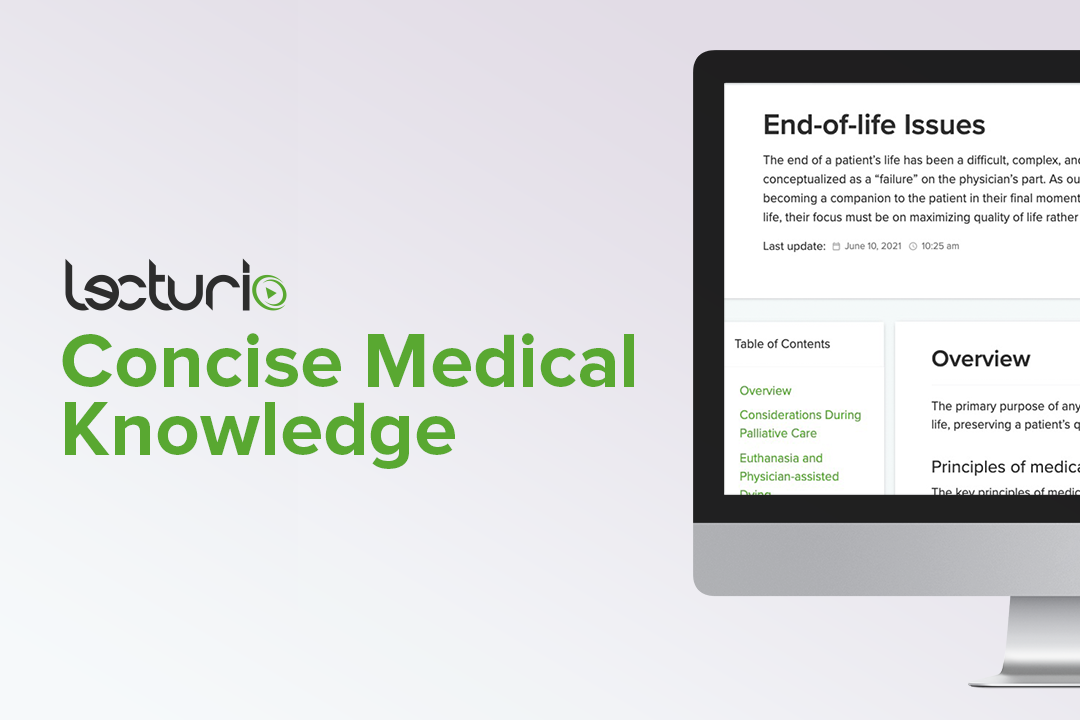Playlist
Show Playlist
Hide Playlist
Ethical Controversies in Organ Donation
-
Slides Clinical Ethics Ethical Controversies in Organ Donation.pdf
-
Reference List Clinical Ethics.pdf
-
Download Lecture Overview
00:00 Now that we've covered some of the basics of the philosophy of organ donation, let's dig a little bit deeper into some of the ethical controversies. 00:08 With regard to the philosophy of organ donation, the following 3 ethical difficulties have been mentioned; altruism, explicit consent, and that of organ trade. 00:21 With regard to altruism, organ donation is in in of itself a very altruistic act and founded on the pillars of altruism. 00:28 This can be described as when the moral value of an individual's actions is focused mainly on the beneficial impact to other individuals without any sort of regard for the consequences on that individual. 00:39 That is an altruistic act. Explicit consent is a bit of a different concept. 00:44 The World Health Organization or WHO defines explicit consent as a system in which cells, tissues, or other organs may be removed from a deceased person if the person has expressly consented to such removal during his or her lifetime. 01:00 For example, in the United States we have the ability to indicate on our driver's license whether we would or would not explicitly consent to organ donation. 01:11 Organ trade is a bit more of a problematic in a different concept. Organ trade is when organs are given for purely financial gain. 01:19 In the United States, the anatomical gift act in the National Organ Transplant Act of 1984 explicitly prohibit the buying and selling of organs. 01:30 Unfortunately, however, illegal organ trade does persist around the world and in so-called transplant tourism exist and persist in many countries despite laws which exist and may or may not be enforced against it. 01:45 One of the very difficult concepts to deal with in organ donation is that of prisoners as organ donors and there are both pro and con arguments to why prisoners might or might not be organ donors. 01:56 On the pro side, donation does benefit the prisoner as well as society and it may serve as some sort of a compensation for crimes against society. 02:07 The prisoner may feel redeemed in his or her action and clearly the recipient would benefit from a donated organ. 02:15 However, this is not without ethical pratfalls and the counter argument is that a prison environment first of all may actually prohibit free and voluntary consent in in of its nature of an incarcerated environment. 02:28 And secondly, there is some thought that prisoners might be willing to barter for a reduction of sentence as a function of donation and this could be misused as some sort of form of coercion. 02:42 Financial incentives can be treated in a more broad network. 02:46 The United Network for Organ Sharing or the UNOS Ethics Committee defines financial incentives as the following; any material gain or valuable consideration obtained by those directly consenting to the process of organ procurement whether it be for example number 1, the organ donor him or herself in advance of their demise the donor's state or the donor's family. 03:14 The Conventional on Human Rights and the Biomedicine of the Council of Europe has favored compensation for donor expenses incurred. 03:22 So now we're talking not about trading organs purely for money but we're talking about ways to appropriately and justly compensate those who have taken the altruistic act of donating an organ. 03:35 So compensation for donor expenses is in fact quite appropriate and largely permitted. 03:41 This same concept has been supported by the World Medical Association and the WHO. 03:47 Several US states in fact have actually passed legislation that provides paid leave to organ and bone marrow donor thereby encouraging this process and not penalizing absences to do such acts. 04:01 And then finally, there are laws which may offer tax benefits for live and deceased organ donors and for employees of these donors. 04:10 Financial incentives, however, are not without their concerns. 04:14 Some of these may include decreased emotional gain for the donor family. 04:19 For example, if someone donates an organ purely out of altruism, there is a sense of having done good for somebody whereas if one is compensated, this becomes a bit of a different transaction. 04:30 Some have argued for a decreased respect for the sanctity of the human body and of life itself by buying or selling an organ. 04:38 The Laws of Personal Touch relates to trading altruism perhaps for financial gain. 04:45 There is a fear of creation of organ markets where the poor would be harvested for the rich. 04:50 And then finally, there are major religious traditions which are post payment for organ donation on the grounds that persons do not own their bodies but rather are stewards of them. 05:00 I'd also like to address the concept of living seller markets. 05:04 Well, some have argued that only kidneys are most likely to be available for a living seller market. 05:10 Some might argue that a partial hepatectomy or a partial liver donation may be possible, but living seller markets usually revolve around kidneys. 05:20 Arguments against this is that only the poor and the very desperate would want to sell their body parts. 05:25 And then finally, the payment that is given to persons may be done so as an inducement somehow to kill or rub or take organs from someone else to pay debts or otherwise make financial gain. 05:41 Organ rationing is where we improve survival with the transplant by a system of rules that are waited towards survival matching and these could be used for example on the following cases. 05:53 Number 1, we can allocate the highest quality kidneys to candidates with the highest estimated post transplant survival. 06:01 That sounds like a logical intervention. 06:03 Another possible organ rationing implication would be to allocate remaining organs so that candidates who are within, for example, 10-15 years older or younger than the donor's age would be most likely to receive and succeed with these organ donations.
About the Lecture
The lecture Ethical Controversies in Organ Donation by Michael Erdek, MD, MA is from the course Organ and Tissue Donations.
Included Quiz Questions
Which of the following correctly defines "altruism"?
- The moral value of an individual's actions is focused on the benefit of others.
- The social value of a group's actions is focused on the benefit of others.
- The social value of an individual's actions is focused on the benefit of others.
- The moral value of an individual's actions is focused on the detriment of others.
- The moral value of a group's actions is focused on the detriment of others.
What is the name of a law that prohibits buying and selling organs?
- Anatomical Gift Act
- Medical Giving Act
- Organ Donation Act
- National Individual Gift Act
- International Gift Act
What is an argument against living seller markets?
- Payment may incentivize homicide.
- Only the rich will sell their organs.
- Everyone will benefit.
- Only livers will be available.
- Excess organs will flood the market.
Customer reviews
5,0 of 5 stars
| 5 Stars |
|
5 |
| 4 Stars |
|
0 |
| 3 Stars |
|
0 |
| 2 Stars |
|
0 |
| 1 Star |
|
0 |




